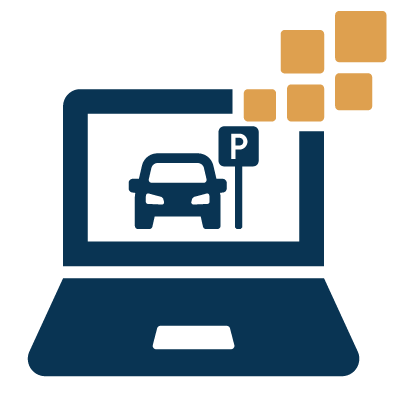Home » Our Work
![]() The Congestion Management Process (CMP) is a data-oriented, systematic approach for evaluating the regional transportation network for locations and sources of congestion and recommending strategies for reducing congestion. The Boston Region MPO’s CMP monitors the performance of the following types of transportation facilities in the Boston region:
The Congestion Management Process (CMP) is a data-oriented, systematic approach for evaluating the regional transportation network for locations and sources of congestion and recommending strategies for reducing congestion. The Boston Region MPO’s CMP monitors the performance of the following types of transportation facilities in the Boston region:
- Roadways
- Freight corridors
- Transit
- Bicycle and pedestrian facilities
About the CMP
The CMP for the Boston region is formulated in coordination with the goals in the MPO’s Long-Range Transportation Plan (LRTP) and guidance from the CMP guidebook published by the Federal Highway Administration (FHWA).
CMP performance monitoring also leads to setting congestion mitigation targets in collaboration with the Performance-Based Planning Program, recommendations for studies to be programmed in the Unified Planning Work Program (UPWP), and improvements to be implemented through the Transportation Improvement Program (TIP) and the LRTP.
In 2012, the MPO established a Congestion Management Committee to ensure that the appropriate congestion mitigation strategies are evaluated and promoted for funding in the UPWP, TIP, and LRTP.
Regional CMP Objectives
The regional CMP objectives are integrated with the MPO’s Long-Range Transportation Plan vision and goal areas.
“The Boston Region MPO envisions an equitable, pollution-free, and modern regional transportation system that gets people to their destinations safely, easily, and reliably, and that supports an inclusive, resilient, healthy, and economically vibrant Boston region.”
- LRTP Destination 2050 Vision Statement
The objectives of the CMP holistically consider congestion trends, traffic data, and community needs. They are the basis for formulating recommendations and strategies for improvement. The Boston Region MPO has adopted the following regional objectives for its CMP:
- To make movement of people and freight across the region safer, easier, and more reliable through improvements to multiple modes
- To set up measures to quantify congestion patterns and formulate traffic performance monitoring systems to determine congestion mitigation strategies in the Boston region
- To evaluate multimodal transportation networks to enable efficient travel demand management, increase utilization of multimodal facilities, and identify and minimize connectivity gaps in various transportation modes
- To develop a holistic approach to congestion management by exploring multiple avenues for alleviating congestion, including encouraging mode shift, demand-pricing strategies, curb use management, and land use considerations
- To promote healthy communities by reducing traffic volumes and, consequently, air and noise pollution arising from transportation, along with reducing fatal and serious injury crashes, paying special attention to vulnerable communities
- To promote improved economic vitality, transportation access, public health and safety, and risk mitigation in the Boston region through identification of congested areas and formulation of relevant, sustainable solutions
2019 Express-Highway and Arterial Roadway Performance Dashboards
The Express-Highway Performance Dashboard and the Arterial Performance Dashboard graphically display peak-period congestion for expressways in the Boston Region MPO area in 2019. The performance measures in the dashboards represent three factors related to congestion: duration, intensity, and travel time reliability. Each dashboard consists of regional overview maps, route-specific data, and downloadable accessible tables. The data used in both dashboards was collected in 2019 by INRIX and processed by CTPS staff.
 Express Highways
Express Highways  Arterial Roadways
Arterial Roadways
2017–18 Inventory of Park-and-Ride Lots at MBTA Facilities
The Boston Region MPO surveys MBTA stations for automobile parking, bicycle parking, and station amenities. At the conclusion of the latest data collection effort, MPO staff created a visual park-and-ride dashboard that shows the parking lot locations, parking capacity, and parking utilization for the 2017-18 park-and-ride inventory. In addition to parking information, data are displayed for accessible parking, bicycle parking, and other station amenities.
Additionally, detailed memoranda that summarize the findings from the 2017–18 vehicle parking and bicycle parking inventories are available in the links below. This includes a comparison of the 2017–18 inventory with the previous inventories (2013–14, 2009–10, and 2006), and appendices that show the number of vehicle and bicycle parking spaces and amenities for each station.
 Park-and-Ride dashboard
Park-and-Ride dashboard
2017–18 Park-and-Ride Memorandum (PDF) 2017–18 Park-and-Ride Memorandum (HTML)
2017–18 Bicycle Parking Memorandum (PDF) 2017–18 Bicycle Parking Memorandum (HTML)
Intersection Improvement Program
The intersection improvement program—which recommended low-cost operational improvements at signalized intersections in the Boston Region MPO area—was funded by the Congestion Mitigation and Air Quality Improvement (CMAQ) program. This program received direct funding to retime traffic signals, and to make recommendations for other potential improvements, but not to implement the recommended improvements. Thus, municipalities could choose to effect these suggestions at their discretion, but needed to absorb the implementation costs themselves. A summary of the pilot program, which was completed by Howard Stein Hudson, can be viewed at the link below. Mini-reports for any of the evaluated intersections are available upon request by contacting Elena Ion at eion@ctps.org.
Intersection Improvement Program Summary (PDF) Intersection Improvement Program Summary (HTML)
Selected CMP Products
New and Emerging Metrics for Roadway Usage
Traffic Congestion in the Boston Region – Beyond the Daily Commute
Pedestrian Report Card Assessment
Congestion Scan Methodology (PDF) Congestion Scan Methodology (HTML)
2015 Express-Highway Performance Dashboard
2015 Arterial Performance Dashboard
All CMP products and documents, including those prior to 2013
